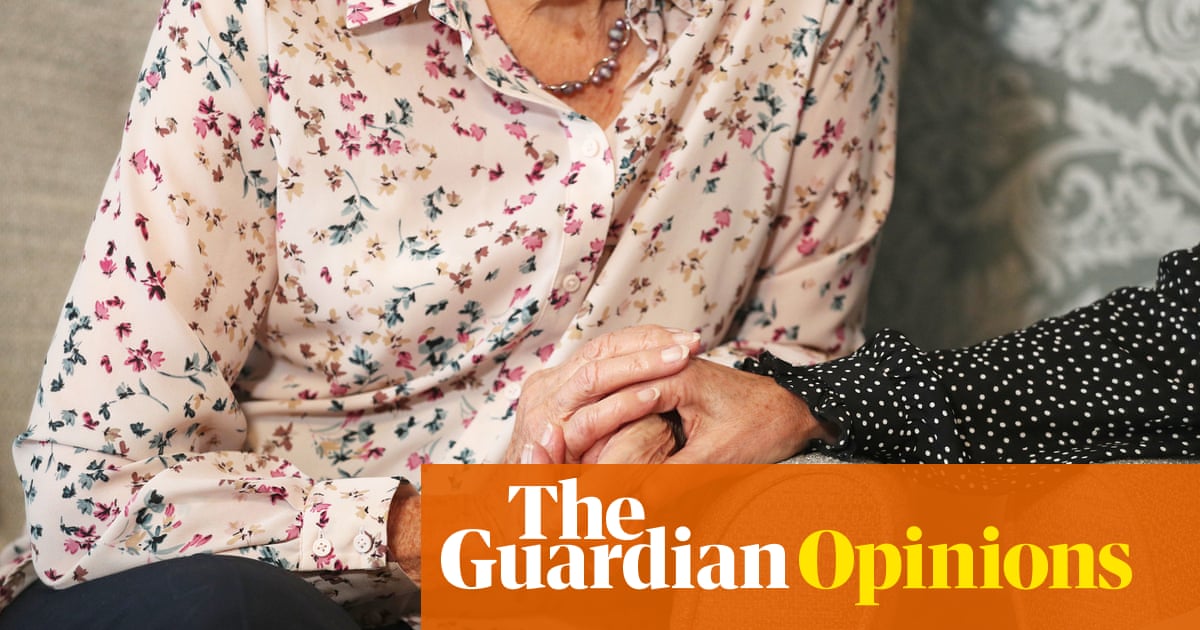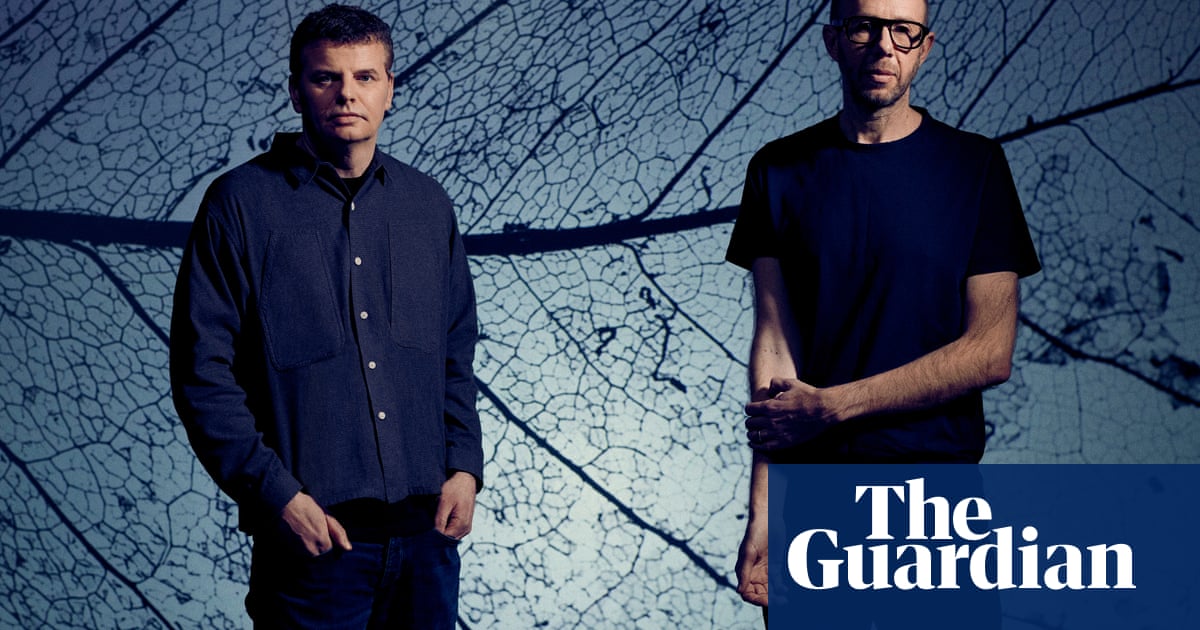
For more than half a century, Barbara MacArthur, one of the first female police officers in south Wales, has worked countless long, unpaid hours as a carer.
In the 60s, she began looking after her ailing parents in her small terraced house in Cardiff. Now, aged 93 and frail herself, she continues to care for her 66-year-old disabled son, Howard. The pair live on the cramped ground floor of the house because neither can make it up the stairs.
MacArthur has always approached her caring duties with stoicism and good humour – until this week. The coronavirus crisis prompted her to write a heartbreaking letter to the Guardian in which she spelled out her fight for survival, argued that the care system was broken, and said she wished she had the time to feel lonely.
Speaking on the doorstep of her home on Thursday, with Howard occasionally putting his arms around her, MacArthur told of her surprise that her cry for help had gone viral on social media. “It’s just our story,” she said. “I didn’t expect it to get such a response.
“We feel a little forgotten about sometimes. Most of our relatives and friends have died or moved away. I used to be able to struggle out to the shops on my walker, but can’t even do that now. We’ve been pretty much stuck here on our own throughout the coronavirus.”
The last time MacArthur made headlines was when she helped bring to justice two burglars who had been posing as window cleaners. She recognised the pair from an appeal in a local paper and called the police. Once a police officer, always a police officer.
But in her letter to the Guardian, MacArthur launched a withering attack on the care system. “Our broken care system has been decimated by coronavirus,” she said.
As well as being a police officer, MacArthur spent time working as a hotel housekeeper and a court clerk. She raised Howard by herself after her husband left. In the 60s and 70s, she looked after her parents, Ruth and Thomas, who died aged 90 and 93. “They couldn’t bear to be in a council home, so I took them in. It was hard work, unpaid work.”
Today, MacArthur is partially sighted, hard of hearing and has arthritis (a rare form called ankylosing spondylitis), with partial paralysis in her left hand, and a heart murmur. She has had a heart attack and two mild strokes.
Howard has learning difficulties and physical disabilities and in 2018 he had sepsis. At the time, he was still sleeping on the first floor, and MacArthur had to crawl upstairs to tend to him while she waited for the paramedics.
MacArthur believes cutbacks before coronavirus made it more difficult for them to get help. “I love Howard very much, but it’s very hard. I sometimes wish there was a bit more help,” she says.
Another problem is the street in Cathays where they live. “It’s become a transient area here. It’s very popular area for students and most of the houses are empty at the moment. There are not that many local people around here to help.”
While the Guardian was speaking to the MacArthurs, a friend, Jason Morrow, did arrive to deliver milk and the papers. “I do what I can to help – they’re lovely people,” he said. At lunchtime, Cardiff council’s meals on wheels service arrived with hot lunches.
At the start of the pandemic, mother and son struggled to get supermarket deliveries. The MacArthurs’ local Senedd member stepped in. Jenny Rathbone said she admired MacArthur hugely – “She’s an extraordinary woman ”– but disagreed with her on some points. “I don’t think our current system is broken, though it is under strain and needs more money.”
Rathbone said she was sure that, if MacArthur gave her permission, social services would assess the pair and potentially provide more support. They have been receiving council food parcels during the crisis and Howard has a social worker, who was in touch hours after MacArthur’s letter was published.
MacArthur signed off the letter with the puzzled: “Why my son and I have not been added to the ‘vulnerable’ list is beyond my comprehension.” She does not know whether she or Howard are on the Welsh government’s shielded list, but she accepts that she has turned down offers of help from the council, which carries out regular assessments of their needs. “It’s partly because I’m stubborn. I don’t like to ask for anything.”
Now she and Howard live day to day and worry about how a second wave may affect their lives. Howard does his best to help. “I used to be the carer,” said his mother. “Now I’m not sure which of us is the carer and which is the one being cared for.”
A Cardiff council spokesperson said: “The council has worked tirelessly to support vulnerable individuals across the city throughout the pandemic and has delivered more than 6,800 emergency food parcels to households who have been shielding, self-isolating or struggling due to the financial impact of the crisis, as well as coordinating hundreds of volunteers to support those in need in other ways.
“Whilst we cannot comment on individual circumstances, when we become aware via any route that someone needs some additional support, we will always proactively contact them and provide services.”
A Welsh government spokesperson said 130,000 people in Wales, considered to be at high risk of developing a serious illness if they contracted coronavirus because of specific underlying conditions, received a number of letters from the chief medical officer setting out the advice and the support available to them. The shielding programme is to due to be paused in Wales on 16 August.
A spokesperson said: “During the pandemic, supermarkets have significantly increased the number of online delivery slots available and we have been reassured they will continue to make priority slots available to those on the shielded list. If people don’t have family, friends or neighbours who can help them, they should contact their local authority or county voluntary council if they need practical support.”












